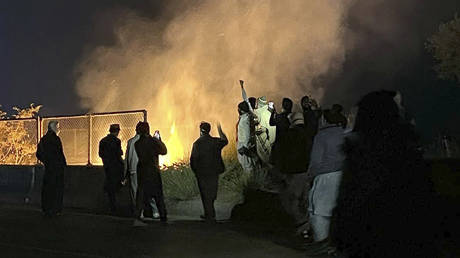
OKLAHOMA CITY –– The Paycom Center in Oklahoma City is a cathedral of new-age basketball, a place where the future has painstakingly been assembled.
Piece by piece, part by part.
On Wednesday night, the Los Angeles Lakers faced a machine. A cold, humming, flawless machine of tenacious defense and ruthless efficiency, that sent Los Angeles reeling to a 121-92 dismantling.
From the opening quarter, the question wasn’t about who would win, but how completely the Thunder would consume the Lakers.
The second quarter, a 40-20 blitz, was the ignition sequence. A systematic dismantling. Los Angeles, a team riding high on the backs of their stars, was reduced to watching their own malfunction.
Shots clanged, passes drifted and defensive assignments were missed in a fog of confusion. The Oklahoma City machine sensed an error in the code, exploited the weakness and initiated its relentless protocol.
They take away whatever you think you’re going to run offensively. No announcement. No fanfare. They simply take it away.
This is not an accident. This is architecture. The Thunder front office, led by Sam Presti, didn’t just collect talent. They sourced specific components.
They drafted not merely for potential, but for personality. For a culture of connectivity and a style of frenetic, unified pressure. They built a machine where every cog, from the superstar to the reserve, is engineered for a perfect fit.
The proof was in the product. With defensive stopper Lu Dort sidelined, the machine didn’t falter. It simply activated another part. Cason Wallace stepped into the vacuum, his ball pressure a torment to Luka Dončić.
The Lakers’ maestro was hounded, harassed and had his rhythm broken. Dončić finished with 19 points on 7-of-20 shooting, a testament to the defensive swarm.
“Wallace did a great job on me,” Dončić admitted. “They’re champions for a reason.”
The antithesis was stark. The Lakers’ isolation-heavy, star-reliant offense met the Thunder’s cohesive, five-man defense.
If styles make fights, this was a technical knockout.
Throughout the night, Dončić took difficult, contested looks.
Austin Reaves, who found no space to operate, en route to 13 points on 4-of-12 shooting, was rendered a non-factor. The Lakers’ offense, once a river, was dammed at every turn.
“I would say if we did what we were supposed to do, then we could have… kept them from getting off to an early start,” Reaves said.
Against this machine, even perfect execution is a monumental task.
At the helm was Shai Gilgeous-Alexander, the quiet engine of it all. He is the system’s central processor, a player of devastating deliberation.
Gilgeous-Alexander scored 30 points with nine assists in just 29 minutes, his work done so efficiently he watched the entire fourth quarter from the bench.
He is the embodiment of the Thunder’s ethos: ruthless, efficient, and utterly unshakeable.
“He’s a killer,” head coach JJ Redick said. “He’s the MVP for a reason… he’s still going to figure out a way to get 30.”
The defending champions are a masterpiece of modern team-building. Seven Thunder players scored in double figures. The bench contributed 49 points.
The defense, the league’s best, held the Lakers’ potent offense to a season-low 92 points. It was a victory of the whole, a triumph of the collective.
The Thunder demonstrated that once you have a winning formula, when players believe in it and achieve success, you can add different parts to the machine, and it won’t matter. That’s a well-oiled team.
In the game’s aftermath, the Lakers were left to scavange through the wreckage of their own performance, to search for the flaws in their own design, to salvage their dignity.
The Thunder, meanwhile, will continue their quiet hum. Their machine is built. It is operational. And on a Wednesday night, it showed the world that the future is not just coming; it is here. These Thunder are wired to win––again.





